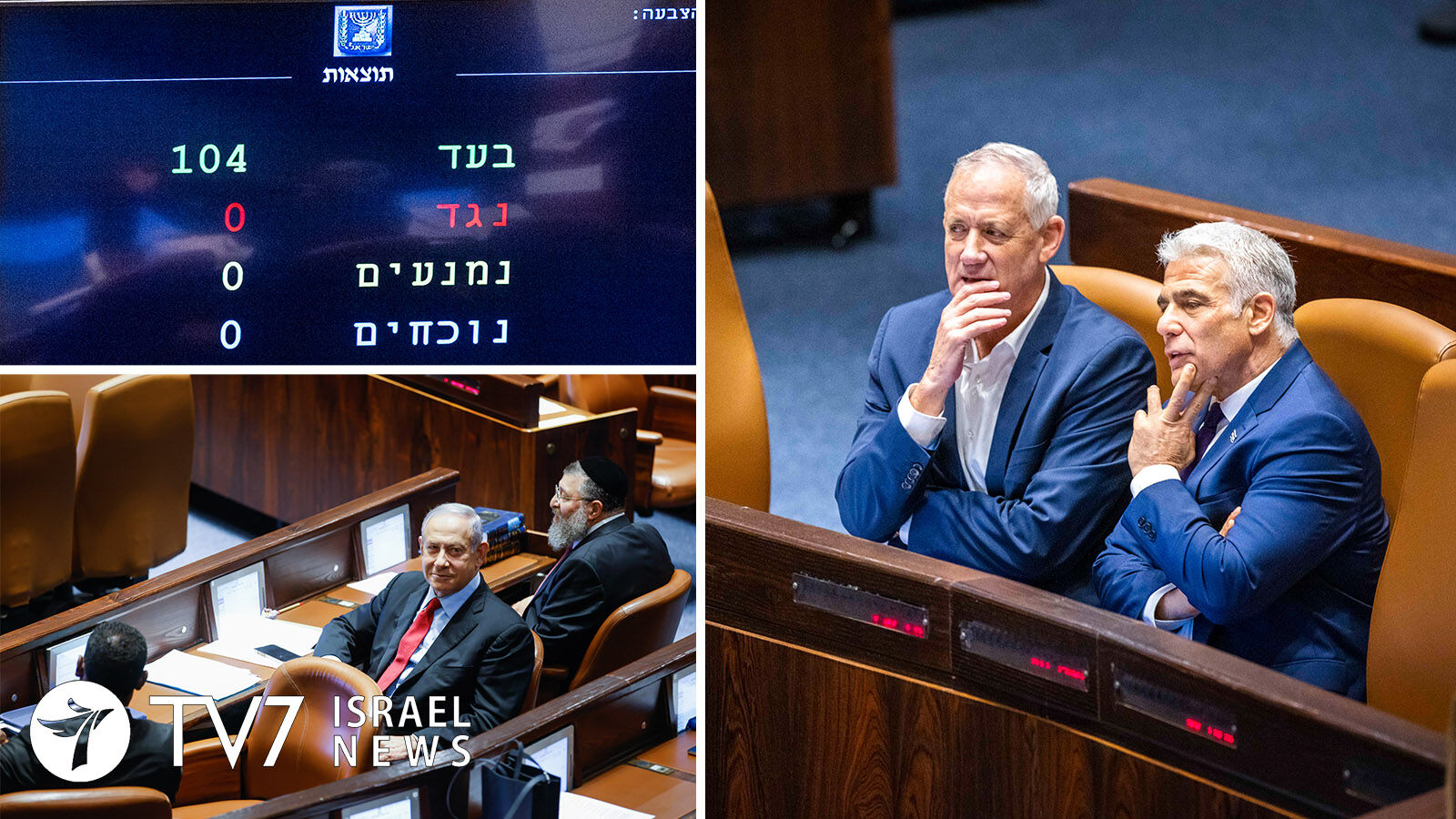The country moved closer to its fifth election in less than four years after lawmakers gave an initial nod to dissolve the 24th Knesset.
By Erin Viner
Members of the Knesset (MKs) unanimously approved the preliminary reading of a bill expected to be finalized next week, after which the centrist Foreign Minister Yair Lapid will take over from rightwing Prime Minister Naftali Bennett at the head of a caretaker government.
The two political partners and their diverse eight-party coalition coalition of far-right, liberal, centrist and Israeli-Arab parties led the nation for just over a year, ending the record 12-year reign by former Prime Minister Benjamin Netanyahu.
The Designated Interim Premier (Yesh Atid) has cast the upcoming election as a battle between moderates and extremists who support Netanyahu, who currently serves as Opposition Leader.
Prospects of Netanyahu’s possible political comeback are already dominating the campaign.
The Likud leader has been overjoyed by the disbanding of what he has called “the worst government in Israel’s history,” and has vowed to win a sixth term in office.
Four public opinion polls published on Tuesday found Netanyahu’s Likud faction and its likely allied nationalist and ultra-religious parties are the clear frontrunners – but they would still fall short of garnering the necessary a governing majority in Israel’s 120-seat Knesset. The surveys consistently reveal that Likud is expected to emerge as the largest faction with about 30 mandates, but nevertheless require the difficult building of a coalition with like-minded allies – a task which Netanyahu failed to accomplish in the four last elections.
Contenders across the political spectrum have vowed to prevent a return to power by Netanyahu
Two of the Likud’s natural partners, such as Finance Minister Avigdor Liberman (Yisrael Beiteinu) and Justice Minister Gideon Sa’ar (New Hope), have both ruled out to possible joining of forces with Netanyahu, who is on trial on corruption charges that he denies.
Coalition lawmakers including Liberman are already working to advance legislation to bar any person under criminal indictment from heading a government, although it is less that certain whether there will be enough support to pass the bills.
“The main object in the upcoming election is to prevent Netanyahu from returning to power,” the Finance Minister said at an Israel Democracy Institute conference in Jerusalem. “I hope that we will act today to ensure that, together with the bill to dissolve parliament, the criminal charges law will come up as well to prevent someone who is facing criminal charges from running for the premiership. I hope that this law will win a majority,” he added.
While speaking to Israel’s Army Radio, Justice Minister Sa’ar also stated that he “won’t be bringing Bibi (Netanyahu) back. All of the party members are with me. No one will succumb to inducements (to defect to Likud).”
Bennett, whose Yamina faction could even possibly re-join a Netanyahu government, revealed in a Twitter post that he would vote against such a measure and leave Netanyahu’s eligibility for office up to the voters to decide, expressing confidence “they will make the right choice.”
Designated Interim Premier Lapid adopted a harder stance, telling an economic conference in Jerusalem that “Netanyahu knows if Israel remains a liberal democracy that he will not be able to cancel his trial,” underscoring that, “Our mission is to ensure these people don’t take power and not to let them crush Israel’s democracy.”
The 72-year-old Netanyahu, who has cast his trial as a leftist witch-hunt, has accused his political rivals of relying on Muslim Arab lawmakers he characterizes as “supporters of terrorism.”
“Only a strong national government headed by Netanyahu will put Israel back on a right-wing course,” Likud said in response to Lapid’s remarks.
The exact date of the upcoming election, likely between late September to early November, will be decided next week.
